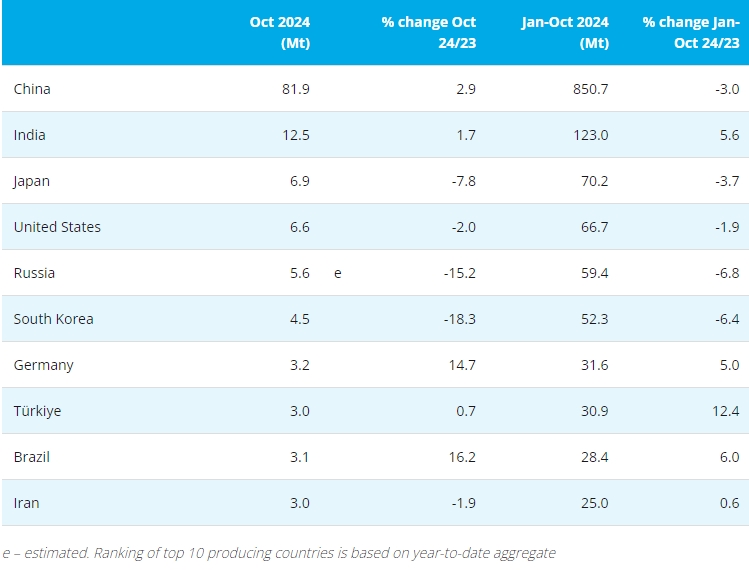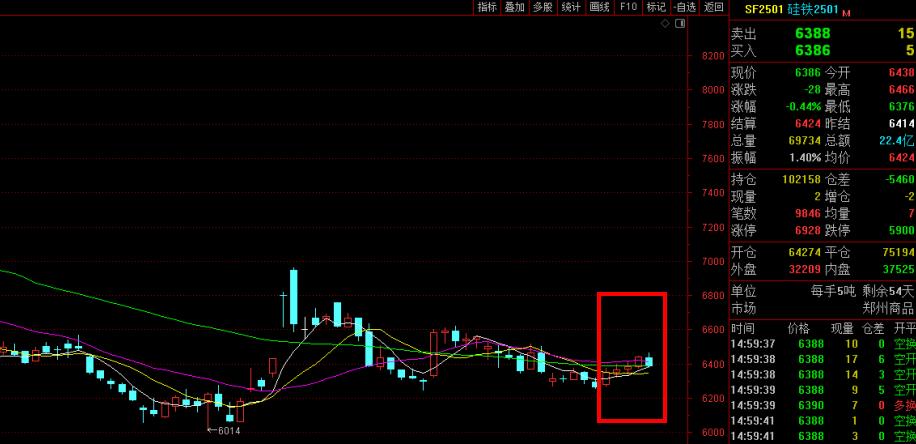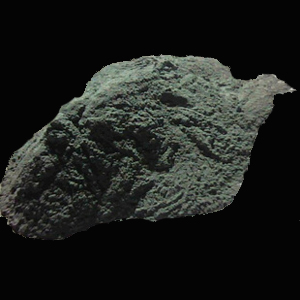Globe Specialty Metals (GSM), which had a short-term pop in 2010, lost its fizzle. At the beginning of 2011, Dow Corning’s long-term, fixed-price supply contract ended.
GSM’s sales in the quarter ended June 30, 2011 rose slightly to $175.9-million from $172.8-million in the quarter ended Mar. 31, 2011, while its net income fell to $15.5-million from $23.4-million in the previous quarter.
GSM attributed the higher sales in the quarter ended June 30, 2011 to higher prices (2%) counteracted by lower shipments (-4%).The company’s total shipments were 56,580 mt with an average selling price of $1.30 per lb ($2,862 per mt) in the quarter ended June 30, 2011, down from 59,276 mt with an average selling price of $1.23 ($2,703) in the previous quarter. Tons sold slightly exceeded tons produced in the quarter as silicon-based alloy inventory was reduced.
For the first time, GSM did not break out ferrosilicon (specialty products) from its silicon in reporting sales in order to avoid giving “sensitive information” to competitors.
GSM had maintenance shutdowns and an unplanned shutdown at its Bridgeport, AL, ferrosilicon smelter in April. Bridgeport is GSM’s only furnace plant, and when one furnace is down, all the operating costs, in this case approximately $2.5-million per month, are charged directly to the cost of goods sold.
Globe is planning to take maintenance shutdowns at its Niagara Falls, NY; Beverly, OH, and Selma, AL, plants in the fourth quarter and is building stocks to supply customer requirements.
The company intentionally scheduled the maintenance to be completed in 2011 in order to prepare for a strong production year in 2012 and to take advantage of the 100% depreciation bonus tax benefit for assets placed in service by Dec. 31, 2011.
The company said it had some preliminary discussion with silicon buyers for 2012 supply contracts but talks were very tentative.
For its fiscal year ended June 30, 2011, GSM’s results looked much better because they included the completion of its low-priced (probably under 90¢ per lb) supply contract with Dow Corning. That material was sold at free-market prices—in excess of $1.30—for the first half of 2011.
As a result, Globe’s net sales in the 12 months ended June 30, 2011 were $641.8-million with a net income of $56.7-million vs. $472.7-million and $34.3-million in the same year-ago period.
Finally, the company remains optimistic about its Iceland silicon metal project. The new Iceland smelter is on track for 2014 startup, adding another 40% to GSM’s silicon metal volumes and over $150-million in cash.
In answering a question on GSM’s future acquisitions, Mel Appelbaum, GSM’s CFO, said: “We’re also looking at additional opportunities and I’d say, they’re largely now focused on whether we can expand production at the same metrics of Iceland. For example, we’re looking at silicon metal which could be quite interesting although that’s a high standard, given how we think Iceland will benefit us.”
Appelbaum added: “Are there opportunities in silicon based alloys? Maybe alloys that we used to make but don’t make currently. Is there an opportunity to acquire businesses that make those alloys and niche products with high gross margins that are sold into similar customers to ours like steel mills? There, we are looking actively and have been for the past several years and other opportunities to acquire other ores that you alloy with silicon metal so we make the silicon-based alloys. We’re not simply a toll processor but we control the ores as well. So the pipeline is very active, there are a number of different opportunities, and we don’t have an indication of what else might close, but I can tell you that we’re very busy on the development front.”
Not all analysts were sold on GSM’s financials. The majority gave it a lukewarm pass, saying the results mostly lived up to expectations. They thought the company could still have a rosy future based on higher silicon and ferrosilicon prices in coming quarters, the Alden coal acquisition and the Iceland smelter.
However, a few were more skeptical, saying GSM is overly dependent on silicon and that it hasn’t produced a clear winner with a new commodity yet. “There was nothing in the results to make me buy Globe,” one speculator said. “And with the economy a big question mark, GSM doesn’t have a compelling story to tell.”
Even the eternally optimistic Credit Suisse said it was lowering its estimates to reflect expectations for 2012 contract prices to be settled at current spot levels. “We continue to view GSM as a solid growth story in an attractive industry backdrop. In our view, today’s weakness does not reflect a change in the actual earnings power of the company or the lower third-quarter guidance, but more a de-risking by investors due to the uncertainty of open price contracts and the global economic outlook. While the market may also speculate that the maintenance outage moves were a sign of tepid demand expectations, after speaking with management, we do not believe this is the case.”
Copyright © 2013 Ferro-Alloys.Com. All Rights Reserved. Without permission, any unit and individual shall not copy or reprint!
- [Editor:editor]



 Save
Save Print
Print Daily News
Daily News Research
Research Magazine
Magazine Company Database
Company Database Customized Database
Customized Database Conferences
Conferences Advertisement
Advertisement Trade
Trade


















Tell Us What You Think